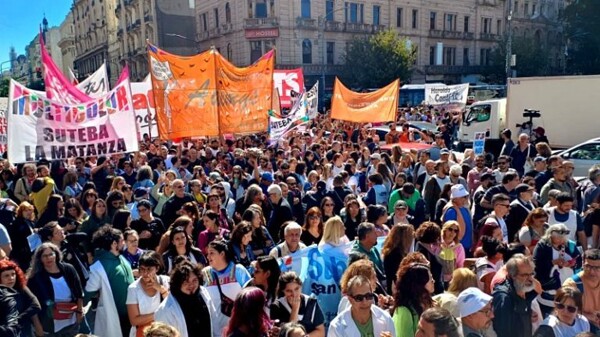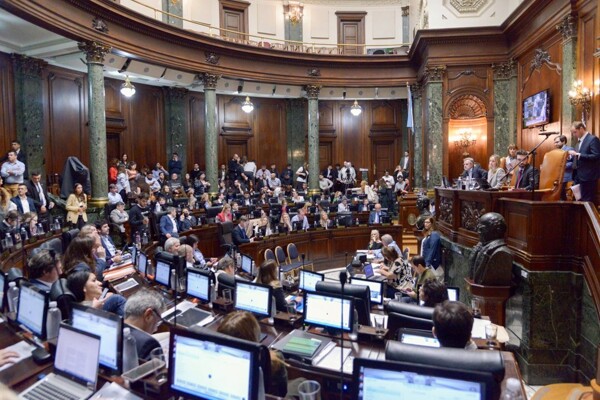
A new public hearing alerted about the dangers of the Reiteration Law that was recently a topic of debate. Among other reforms, it also mandates that the unification of sentences be done arithmetically, thus adding more years of imprisonment to the sentences and even establishes as an aggravating factor that the charge includes two or more independent acts.
Macarena Fernández Hofmann, from the Center for Legal and Social Studies (CELS), explained that the reiteration figure can pose a risk to the principle of innocence. The proposed reform of the national penal and criminal procedural code would allow anyone accused of a crime, without having been convicted, to have a sort of criminal record that facilitates a judge in issuing preventive imprisonment in other cases.
This reform could bring negative consequences in the use of the penal system for the persecution and control of people, exponentially increasing the use of preventive imprisonment. Currently, 42% of people in federal prisons have no conviction. The possibility of criminalizing protest is a concern, as the "reiteration" could be used as an argument to impose preventive imprisonment on protesters with another open case.
The bill also unconstitutionally modifies the regulations related to the state of siege, granting this decision to organs of the Public Prosecutor's Office, the Ministry of Security, and a judge. The nationwide incorporation of the "reiteration" figure seeks to aggravate the sentence in case a person, accused of a crime, has other previous processes in which they are also charged.
The law already exists in provinces like Mendoza and in the Autonomous City of Buenos Aires since 2024. Unlike recidivism, which applies when a convicted person commits the same crime, reiteration operates when someone accused of a crime has pending previous processes. This situation, even if the person is constitutionally innocent, could lead to unavoidable imprisonment based on the existence of "pending" cases.
The reiteration law was unanimously approved in the Senate. Its implementation would allow detentions without a judicial order in areas subject to special investigation, with prolonged periods and without judicial intervention or the right to defense, which could foster harassment and torture. There are criticisms of the vagueness of the definition of "mafia" or "criminal organization" in the context of the new legislation.














